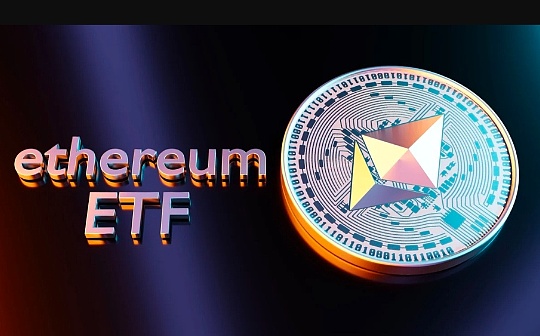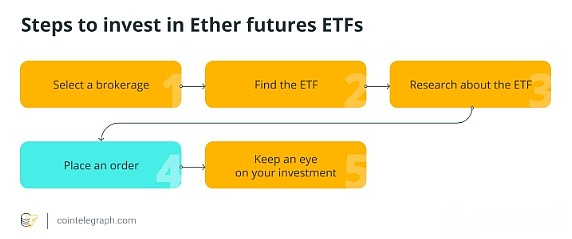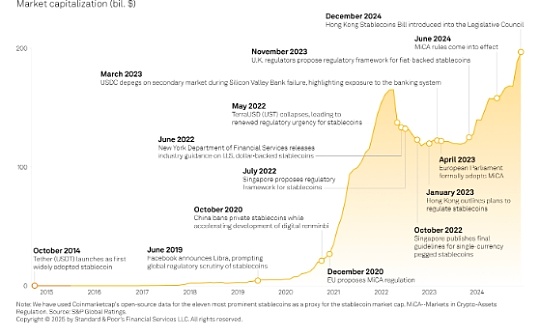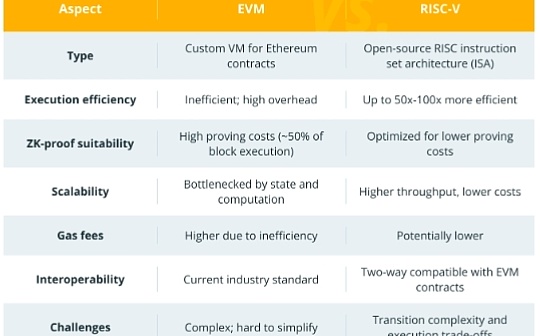
Author: Jagjit Singh, CoinTelegraph; Compiled by: Tao Zhu, Bitchain Vision
1. Introduction to Ethereum Futures ETF
Ethereum Futures ETFs are investment funds that track Ethereum futures contracts rather than Ethereum itself.
Consider a contract that promises to buy Ethereum at a certain price at some time in the future.These derivative contracts are traded through Ethereum (ETH) Futures Exchange Trading Funds (ETFs), providing a regulated method of investing in Ethereum using brokerage accounts.
In 2021, Canada launched the first batch of Ethereum futures ETFs.Although futures-based ETFs have been approved, the U.S. Securities and Exchange Commission (SEC) has not yet approved spot Ethereum ETFs in the country.
Asset management companies regulate Ethereum futures ETFs.The main issuers that provide Ethereum Futures ETFs are Bitwise, VanEck and ProShares.These companies deal with the complex issues involved in purchasing and disposing of futures contracts, controlling rollovers to retain exposure, and ensuring ETFs comply with legal requirements.
two,How does Ethereum Futures ETF work?
Without actually holding cryptocurrencies, investors can use Ethereum Futures ETFs to speculate on the future price of Ethereum.
Ethereum Futures ETFs do not retain tangible assets, but invest in futures contracts.These contracts are promises to buy or sell Ethereum at a pre-order price on future scheduled dates.Without processing a wallet or cryptocurrency exchange, investors can buy these contracts through ETFs, thus enduring the impact of Ethereum price fluctuations, which simply raise investors’ funds to buy them.
Suppose the Ethereum Futures ETF has a contract that will buy 100 ETHs for $4,000 per piece within three months.If Ethereum reaches $4,500 on the contract expiration date, the ETF will make a profit and its share price will rise.By comparison, if the price of ETH falls to $3,500, the ETF suffers.
A key point to remember is that Ethereum Futures ETFs continue to manage their contracts through rollouts to maintain exposure.This means they buy new contracts that are late on expiration and sell contracts that are about to expire.Due to this process, the price of ETFs and the actual spot price of Ethereum may be slightly different.
3. How to invest in Ethereum Futures ETFs
To invest in an Ethereum Futures ETF, choose a brokerage firm, find the ETF you need, such as the VanEck Ethereum Strategy ETF, thoroughly study it and place an order to complete the purchase.
The following are the general steps to invest in Ethereum Futures ETFs, taking VanEck Ethereum Strategy ETFs as an example.VanEck Ethereum Strategy ETF provides regulated Ethereum futures exposure, simplifying the complexity of direct ownership, and its C-Corp structure improves investors’ tax efficiency.

Choose a brokerage company
The first step involves creating an account that allows ETF trading on brokerage platforms such as Fidelity, Robinhood, Vanguard, and Charles Schwab.
Find ETF
Use its stock code to find VanEck Ethereum Strategy ETF or any other Ethereum Futures ETF.The stock code of VanEck ETF is EFUT.
Research on ETFs
Perform due diligence on selected ETFs before purchasing.Read the fact sheet and prospectus, as well as positions, expenses and risks associated with futures contracts.
Place an order
Buy the required number of Ethereum Futures ETFs by issuing a buy order, just like buying traditional stocks.To complete a purchase, specify your order type, such as a limit order or a market order.
Pay close attention to your investment
After purchase, monitor the performance of the ETF; remember that Ethereum Futures ETFs inherit the volatility of cryptocurrencies, which may be reflected in their prices.
4. Why can C-type companies enable Ethereum Futures ETF investors to obtain tax benefits?
Compared to traditional regulated investment companies (RICs), C-Corp structured Ethereum futures ETFs may offer significant tax benefits to long-term investors.
Traditional companies (or C-type businesses) need to double tax on company and shareholder dividends.They allow flexible profit distribution and offset future gains with losses.RIC, by contrast, is a special investment company that must distribute most of its profits to shareholders, but pays a transfer tax to avoid corporate-level taxes.
VanEck Ethereum Strategy ETFs and other C-Corps’ ability to carry forward losses to balance future gains may help investors reduce tax payments.Furthermore, more funds may continue to invest and compound interest over time, as they also do not need to allocate capital gains to investors.
In addition, investors’ after-tax returns can be further increased because spending on C-Corp Ethereum Futures ETFs is often taxed at a lower long-term capital gains rate compared to the regular income tax rate.
5. Advantages of Ethereum Futures ETF
Ethereum Futures ETFs provide a convenient way to trade Ethereum without a cryptocurrency wallet, providing regulatory protections and potential tax benefits, while also acting as a hedge for traditional assets and allowing speculation in a downturn in the market.
Just like ordinary stocks, Ethereum Futures ETFs can be bought and sold through traditional brokerage accounts without configuring a cryptocurrency wallet and using an exchange.
By operating within the existing regulatory framework, Ethereum Futures ETFs provide investors with a certain degree of protection and supervision.
Additionally, by introducing cryptocurrency risks into diversified portfolios, these ETFs can serve as hedging tools for traditional assets and provide investors with opportunities to understand the potential of the Ethereum ecosystem.
Unlike actually owning ETH, Ethereum Futures ETFs may offer considerable tax benefits in some jurisdictions.Gains and losses may be treated differently, potentially reducing the tax burden on investors.In addition, investors can speculate on the decline in Ethereum prices through futures-based ETFs.This provides opportunities to profit from market downturns or protect other investments in the portfolio.
6. Risks related to Ethereum Futures ETFs
Investing in Ethereum Futures ETFs can bring risks due to price differences with ETH, which are exacerbated by their volatility and complexity as well as management fees and potential liquidity issues.
The price of Ethereum Futures ETFs may not always be consistent with the Ethereum spot price because they monitor futures contracts.In addition, futures prices may exceed spot prices.As it continues to roll out contracts, this gradually reduces the return on the ETF.
Like other cryptocurrencies, ETH is very volatile.Ethereum Futures ETFs are riskier investments because they inherit this volatility of actual Ethereum.Furthermore, due to the high complexity involved, some investors will find it difficult to understand and invest in these financial instruments.
Additionally, Ethereum Futures ETFs charge management fees, which, like any ETF, increases the overall investment cost.These expenses can erode potential returns.In addition, some Ethereum futures ETFs may have lower trading volumes than Bitcoin futures ETFs, so it is difficult to trade at ideal prices, especially in large volumes.








